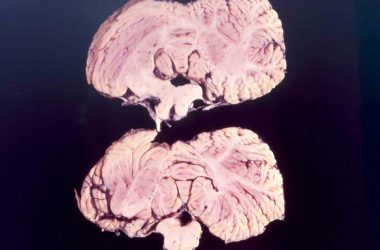Recent research has revealed the significant influence of the gut microbiome on the immune system. With 70 to 80 percent of immune cells residing in the gut, constant communication with microbes helps in fighting diseases, strengthening immune responses, and regulating inflammation, which is the body’s defense against infections. However, excessive inflammation can damage cells and contribute to chronic illnesses.
The implications of the gut microbiome in various chronic diseases, such as arthritis and Alzheimer’s, are becoming evident. While current findings only suggest associations, they raise the possibility that gut microbes may play a role in causing or contributing to conditions that are difficult to treat. This concept has already inspired the development of new treatments.
Studies have shown that the gut microbiomes of individuals with conditions like multiple sclerosis, type 1 and type 2 diabetes, Parkinson’s disease, and asthma differ significantly from those without underlying illnesses. Additionally, research published this year found that individuals with chronic fatigue syndrome (also known as myalgic encephalomyelitis or ME/CFS) have lower levels of a specific gut bacterium called Faecalibacterium prausnitzii in their stools. This bacterium produces anti-inflammatory molecules, suggesting that its absence may contribute to the inflammation observed in the condition. Similarly, individuals with inflammatory bowel disease (IBD), characterized by chronic inflammation of the gut, also have low levels of F. prausnitzii.
The connection between the gut microbiome and chronic fatigue syndrome
Chronic fatigue syndrome (CFS), or ME/CFS, is a complex condition characterized by extreme fatigue that doesn’t improve with rest. The exact cause of CFS is unknown, making it difficult to diagnose and treat. However, the discovery of associations between the gut microbiome and CFS opens up new avenues for research and potential interventions.
One study published earlier this year reported that individuals with CFS had a distinctive gut microbial profile compared to healthy individuals. Specifically, they had lower levels of Faecalibacterium prausnitzii, a bacterium known for its anti-inflammatory properties. The absence of this bacterium could contribute to the chronic inflammation observed in CFS.
Another study found that individuals with CFS had altered levels of other gut bacteria, including an increase in bacterial species associated with leaky gut syndrome. This condition involves increased permeability of the intestinal barrier, allowing toxic substances to enter the bloodstream and potentially contribute to inflammation and other symptoms.
Implications for treatment and future research
The emerging understanding of the impact of the gut microbiome on chronic diseases, including chronic fatigue syndrome, presents new possibilities for treatment and management. By targeting specific gut bacteria or restoring microbial balance, it may be possible to alleviate symptoms and improve overall health.
Interventions such as probiotics, prebiotics, and fecal microbiota transplantation (FMT) are currently being explored to modulate the gut microbiome and potentially improve symptoms of chronic diseases. However, further research is needed to determine the effectiveness and safety of these interventions.
Understanding the role of the gut microbiome in chronic fatigue syndrome and other diseases requires interdisciplinary collaboration and ongoing investigation. By unraveling the intricate relationship between gut microbes and human health, we can pave the way for innovative approaches to diagnosis, treatment, and prevention.








